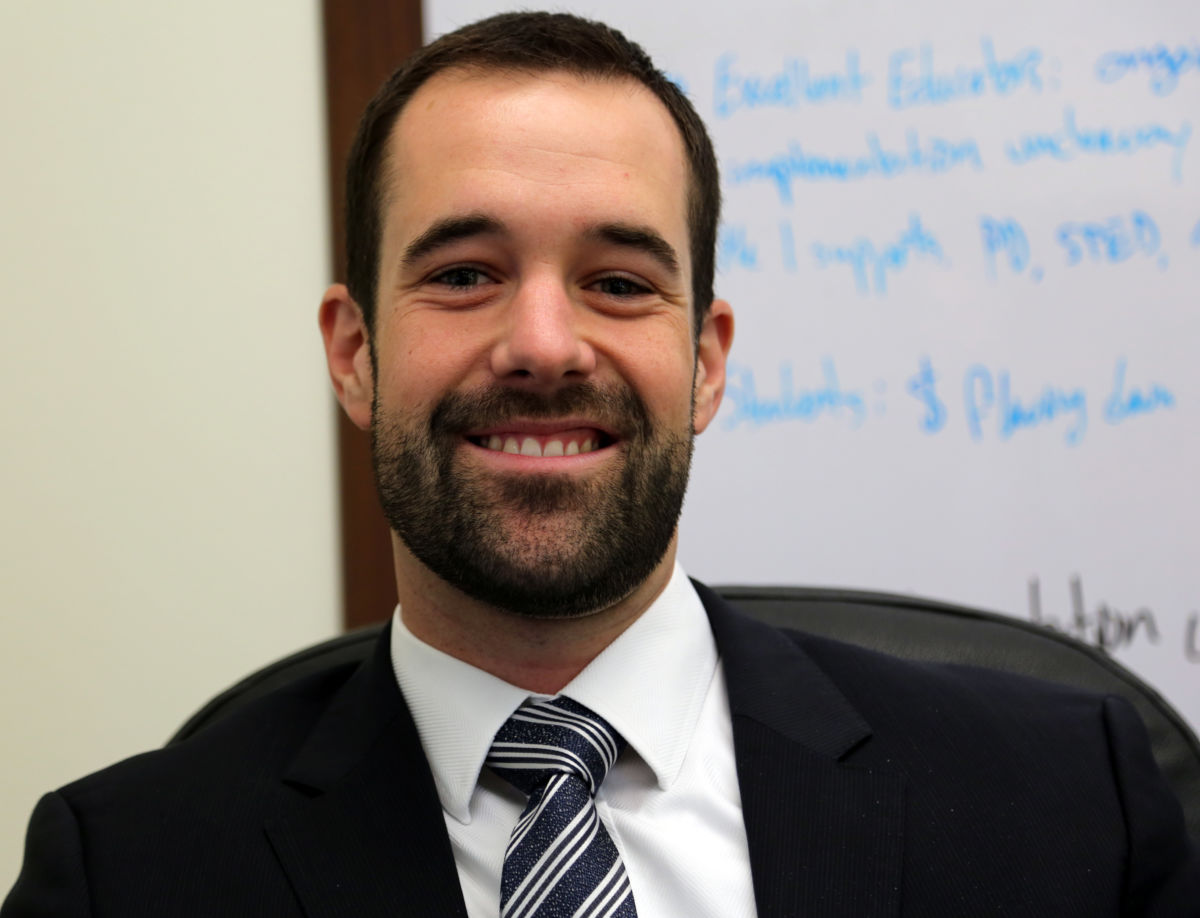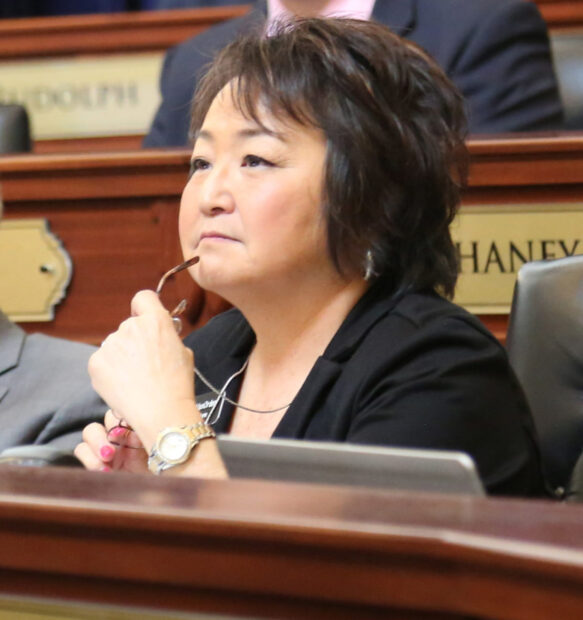Duncan Robb would rather not say Idaho faces a “teacher shortage” — but, instead, a “challenge” in teacher recruiting and retention.

But last fall, the State Department of Education tried to quantify the extent of that challenge. And Wednesday afternoon, state superintendent Sherri Ybarra’s chief policy adviser shared the numbers with senators:
- Eighty-seven superintendents provided the SDE with a fall hiring update. Thirty-three — nearly two-fifths of respondents — said they started the school year with at least one teaching vacancy.
- In all, these 33 superintendents reported 120 vacancies, evenly split between elementary and secondary schools. Not surprisingly, the districts had trouble with hard-to-fill vacancies in special education. But some districts struggled to find teachers in math, science, English language arts and computer science.
- Twenty-nine districts declared a “hiring emergency,” which allows them to hire teachers on a one-year, provisional basis.
Speaking to the Senate Education Committee Wednesday afternoon, Robb said the report was designed to be “food for thought.” It isn’t going to translate into legislation from the SDE — except for Ybarra’s $300,000 request to launch rural school support networks, which could help districts share hard-to-find teachers.
That didn’t stop SDE officials and committee members from kicking around other possible solutions.
One, said Robb, is alternative teacher certification — such as the controversial Teach For America program, which recruits recent college graduates to take short-term teaching jobs in poorer school districts. Robb, himself a TFA alum, said the program will not solve the problem by itself. “It is a tool in the toolbox.”
Another option is to make it easier for retired teachers to go back to the classroom. The State Board of Education has unveiled a bill that would allow retired teachers over the age of 60 to return to the classroom without affecting their pensions.
Senate Majority Leader Chuck Winder, R-Boise, floated the idea of loan forgiveness — an idea pushed by legislative Democrats. Last month, House Democrats unveiled a loan-forgiveness bill geared to rural teachers.
But one change, said Ybarra, is a change of culture. When she travels the state, Ybarra says she hears from teachers and administrators who are more optimistic about their profession.
“We’re coming out of a real era of cynicism,” she told senators, “and I’m not blaming anybody for that.”
Teacher evaluations — and data requirements
The House Education Committee took steps Wednesday to clarify what accountability data school leaders must submit to the state in order to verify teacher raises.
The committee passed Senate Bill 1015 on a voice vote. The bill attempts to clear up confusion by expressly stating that teacher leaders and teacher mentors are considered instructional staff under the Legislature’s teacher pay law, known as the career ladder, State Board of Education spokesman Blake Youde said.
This bill also deals with accountability data submitted under the career ladder.
Gov. Butch Otter and House Speaker Scott Bedke have expressed concerns with the accuracy and validity of evaluations. They said accurate evaluations serve as a vital accountability component to justifying future funding for teachers’ raises.
Since June 2015, Idaho Education News has documented incomplete or inaccurate teacher evaluation data, reported to the state by multiple districts and charters.
The bill would require administrators to submit the following performance criteria to the State Department of Education:
- The overall rating a teacher earns on his or her annual evaluation. In order to move up the career ladder, and earn a raise in the process, educators must earn an overall score of “proficient” and avoid receiving any individual scores of “unsatisfactory.”
- Documentation as to whether a majority of a teacher’s students met their measurable achievement goals or student success indicator targets.
- Documentation of whether a teacher seeking to move from the residency to the professional rungs of the career ladder has a individual professional learning plan.
The bill would also add a sentence to the law, making the state’s intentions clear: “Each element of the performance criteria shall be reported for determining movement on the career ladder.”

There wasn’t any real debate against the bill, but Rep. Ryan Kerby, R-New Plymouth, asked a series of questions trying to determine what exactly schools would need to submit, and where.
Moments later, Chairwoman Julie VanOrden, R-Pingree, made a speech outlining why accountability and accurate teacher evaluations are crucial to her.
“We wanted some pretty strong accountability pieces that went along with it, because of the amount money that was going out and the increase we were going to have in teacher pay at that time and over a five-year period,” VanOrden said.
VanOrden said the bill may require schools to report additional data to the state. “If that is what it takes at this point, I’m actually willing to go down that road.”
Senate Bill 1015 cleared the Senate Jan. 30 on a 35-0 vote. It heads next to the House floor for a vote — its final legislative hurdle.
Pre-K advocates rally at Rotunda
It was a block party on the first floor of the Statehouse Rotunda Wednesday.
Young children and pre-K advocates gathered to build with blocks — and try to build support for early learning programs.
The latter task has proven to be difficult.
Idaho is one of only six states that does not put state money into pre-K programs, according to a recent study from the Education Commission of the States. All told, states are spending more than $7.5 billion on pre-K in 2016-17, and that number is increasing. Spending on pre-K increased by 6.8 percent in 2016-17, and is up 47 percent over the past five years.
Idaho lawmakers have rejected pre-K funding bills for years. In recent sessions, pilot pre-K proposals have failed to get out of the House Education Committee.
“We continue to see close to half of Idaho’s children entering kindergarten without the foundational skills they need for future success,” said Beth Oppenheimer, executive director of the Idaho Association for the Education of Young Children, a pre-K advocacy group. “We are seeing increased funding for early learning throughout most states across the country and it’s unfortunate that our children in Idaho don’t get those opportunities.”
Idaho Education News reporter Clark Corbin contributed to this report.
